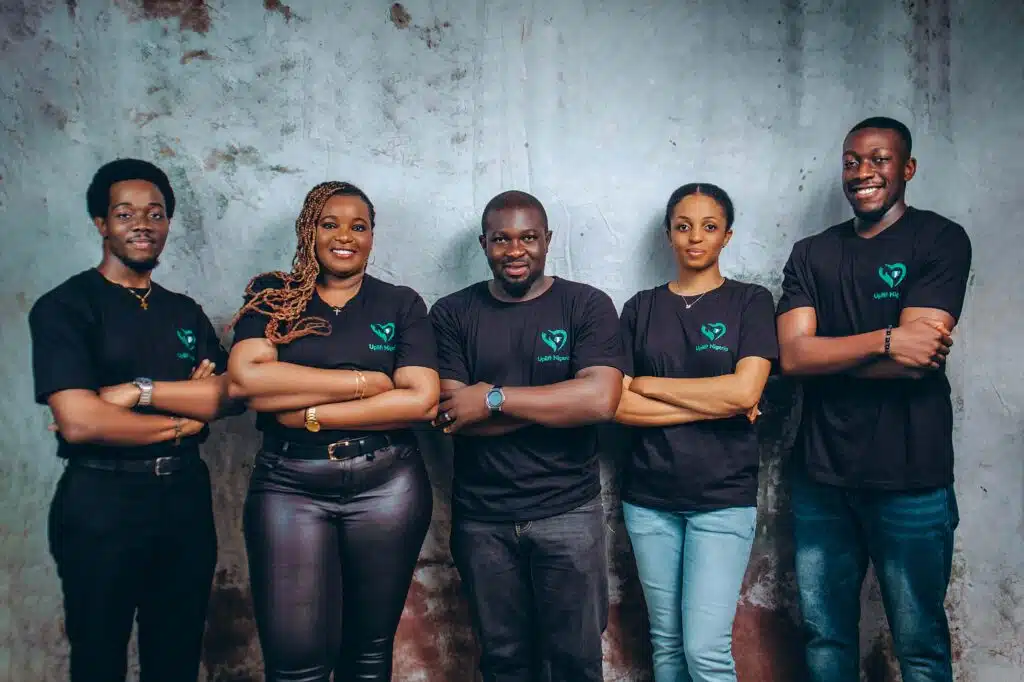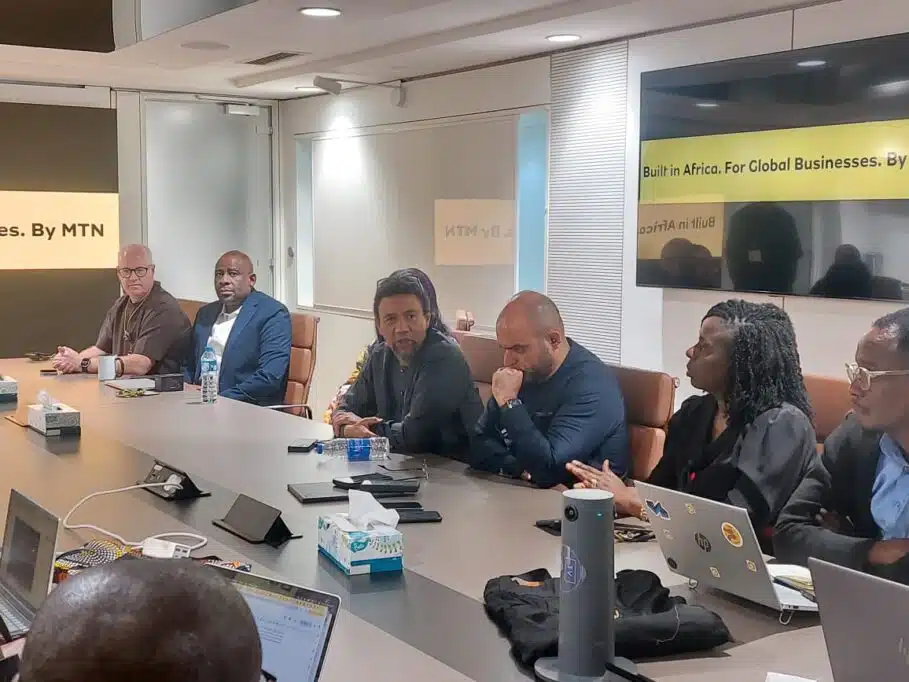Gamarjoba,
Victoria from Techpoint here,
Here’s what I’ve got for you today:
- Mauritian telco to reportedly acquire Jumia
- Uplift is using real people to power inclusion
- MTN unveils West Africa’s biggest data centre in Lagos
Mauritian telco to reportedly acquire Jumia

What happened? Yesterday, Bloomberg reported that Mauritius‑based telco powerhouse Axian Telecom is eyeing a full takeover of Jumia, Africa’s biggest eCommerce player. Axian has already lined up about $600 million in fresh financing, not just to refinance debt, but potentially to power this deal. Jumia’s current market cap? Roughly $500 million. So this would be a major move.
What is Axian up to? Not too long ago, Axian bought an 8% stake in Jumia (via an SEC Schedule 13D), signaling a long-term play in the continent’s digital economy. They praised Jumia’s logistics, fintech (JumiaPay), and its drive for inclusion.
Market reaction: Jumia stock jumped around 6–16% yesterday on the news, fueled by buzz that a takeover offer generally means a premium and investors are always chasing that. But, Reuters and Bloomberg caution: talks are private and may still fall apart.
Why does it matter? This could be a groundbreaking combination. Axian’s telecom infrastructure and fintech muscle, plus Jumia’s eCommerce and logistics edge. If it lands, it might reshape retail and payment systems across Africa.
Jumia’s back story: Jumia had a rocky ride, losing ~90% of its IPO value, shrinking operations from 14 markets to nine, slashing costs, and chasing profitability under CEO Francis Dufay. The company’s been struggling with lowered revenues and investor scepticism.
The bigger picture: At a time when Chinese rivals like Temu and Shein are pushing into Africa, this could be exactly what Jumia needs. With Axian’s deeper pockets and telecom reach, the eCommerce giant might stand a chance to reassert itself if the deal closes and integration works.

Victoria Fakiya – Senior Writer
Techpoint Digest
Stop struggling to find your tech career path
Discover in-demand tech skills and build a standout portfolio in this FREE 5-day email course
Uplift is using real people to power inclusion

Not everyone has a smartphone. That’s the quiet truth behind Nigeria’s financial inclusion challenge and one that Uplift Nigeria is solving in a surprisingly old-school way: with real people. Instead of relying on fancy apps, the platform sends trained community agents into rural areas to register users the analogue way — collecting photos, ID cards, and documents by hand. And yeah, these agents are paid for every sign-up they complete.
Even though cash still rules in Nigeria’s rural spaces, Uplift insists that every user signs up with a bank acc0unt. But here’s the twist: they won’t turn anyone away if they don’t have one. In fact, they’ll often help new users open an account right there and then. No long queues, no bureaucracy. Just access, finally, made easy.
It’s not just about onboarding users though, it’s about giving them a reason to join the formal financial system in the first place. “A woman in her twenties or thirties who has kids now has an incentive to open a bank acc0unt,” one Uplift team member said. And they’re not wrong. For years, Nigeria has pushed for inclusion. Uplift is actually delivering it, one new acc0unt at a time.
But here’s where it gets really interesting. Uplift doesn’t just serve users; it also helps big companies meet their Corporate Social Responsibility (CSR) goals. Usually, doing CSR means building large teams, managing fieldwork, and burning cash on logistics. Uplift’s platform slashes that headache. Brands just plug into their system and boom, impact, minus the overhead.
While the tech world chases shiny apps and AI, Uplift is going hyper-local, low-tech, and, ironically, making more impact than some of the big-name platforms out there. It’s grassroots meets fintech, and it’s working.
So, how does Uplift make money? Find out in Chimgozirim’s latest for Techpoint Africa.
MTN unveils West Africa’s biggest data centre in Lagos

Did you hear? MTN Nigeria just dropped what it’s calling West Africa’s biggest Tier III data centre, and honestly, it’s giving “move over Amazon” energy. The new facility, named the Sifiso Dabengwa Data Centre, was unveiled today, July 1, and it’s already being hyped as one of the largest in Africa.
In its first phase, the data centre is dishing out 4.5 megawatts of power, with plans to scale up to 9MW, and potentially even 20MW, if demand keeps growing. The full project? It’s pegged at a cool $235 million, with $20 million of that going into building cloud infrastructure that MTN says can rival the likes of AWS, Microsoft Azure, and Google Cloud.
MTN’s CTO, Yahaya Ibrahim, and Infrastructure GM, Roger Shutte, say this is just the beginning. At the launch, CEO Karl Toriola made it clear that this isn’t just a big win for MTN, it’s a big deal for Nigeria’s entire tech ecosystem. “This is about growth, AI-readiness, and giving local businesses a proper home base for their data,” he said. The centre is also a tribute to Sifiso Dabengwa, MTN’s former CEO, who laid the groundwork for the company’s success in Nigeria.
But what got people talking was the cloud service. According to MTN’s Chief Enterprise Business Officer, Lynda Saint-Nwafor, this data centre brings “self-orchestration” to Nigeria, a first in the country. That means devs and businesses can log in and spin up their cloud services, just like they do with AWS or Azure. No middleman, no waiting, no wahala.
Even better? Everything is priced in naira, not dollars. So Nigerian startups don’t have to stress over exchange rates or foreign charges. Saint-Nwafor made a solid point: there’s a huge difference between just accepting naira and actually pricing in naira. MTN’s doing the latter, and that could be a game-changer for SMEs trying to scale without breaking the bank.
This move lines up with what industry vets like Ernest Akinlola predicted: telcos are shifting from B2C to B2B, and data centres are the new frontier. MTN didn’t spill details on expected ROI, but the size of the investment and the long-term vision? It’s clear they’re betting big on the future of cloud in Africa.
In case you missed it
- What CAC’s new AI portal means for startups and SMEs in Nigeria
What I’m watching and reading
- 17 Signs of KIDNEY DISEASE You Can See: Doctor Explains
- “What Science Tells Us About Firstborns, Middle Children, and Lastborns” – Jordan Peterson
Opportunities
- Lagos Business School is hiring. Apply here.
- Kuda is looking to fill 37 positions. Apply here.
- MasterCard is recruiting a Head of Impact Labs. Apply here.
- Jumia is hiring a Chief Marketing Officer (Pipeline). Apply here.
- Sun King is looking for a Workforce Planning Analyst, Nigeria. Apply here.
- Building a startup can feel isolating, but with Equity Merchants CommunityConnect, you can network with fellow founders, experts, and investors, gaining valuable insights and exclusive resources to help you grow your business. Click here to join.
- Help us make Techpoint better for you! Your feedback shapes what comes next (your responses may potentially save my job. A bit dramatic, but still). It will only take 30 seconds to tell us what works and what doesn’t. Fill it here.
- To pitch your startup or product to a live audience, check out this link.
- Have any fresh products you’d like us to start selling? Check out this link here.
- Follow Techpoint Africa’s WhatsApp channel to stay on top of the latest trends and news in the African tech space here.
Have a wonderful Wednesday!
Victoria Fakiya for Techpoint Africa.











